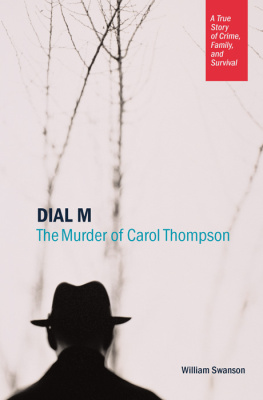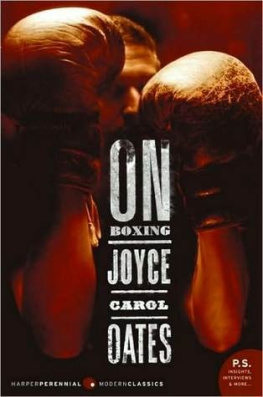Carol Hay - Think Like a Feminist
Here you can read online Carol Hay - Think Like a Feminist full text of the book (entire story) in english for free. Download pdf and epub, get meaning, cover and reviews about this ebook. year: 2020, publisher: W. W. Norton & Company, genre: Romance novel. Description of the work, (preface) as well as reviews are available. Best literature library LitArk.com created for fans of good reading and offers a wide selection of genres:
Romance novel
Science fiction
Adventure
Detective
Science
History
Home and family
Prose
Art
Politics
Computer
Non-fiction
Religion
Business
Children
Humor
Choose a favorite category and find really read worthwhile books. Enjoy immersion in the world of imagination, feel the emotions of the characters or learn something new for yourself, make an fascinating discovery.

- Book:Think Like a Feminist
- Author:
- Publisher:W. W. Norton & Company
- Genre:
- Year:2020
- Rating:5 / 5
- Favourites:Add to favourites
- Your mark:
- 100
- 1
- 2
- 3
- 4
- 5
Think Like a Feminist: summary, description and annotation
We offer to read an annotation, description, summary or preface (depends on what the author of the book "Think Like a Feminist" wrote himself). If you haven't found the necessary information about the book — write in the comments, we will try to find it.
Think Like a Feminist — read online for free the complete book (whole text) full work
Below is the text of the book, divided by pages. System saving the place of the last page read, allows you to conveniently read the book "Think Like a Feminist" online for free, without having to search again every time where you left off. Put a bookmark, and you can go to the page where you finished reading at any time.
Font size:
Interval:
Bookmark:
ALSO BY CAROL HAY
Kantianism, Liberalism, and Feminism: Resisting Oppression
THINK
LIKE
A
FEMINIST
THE PHILOSOPHY BEHIND THE REVOLUTION
CAROL HAY

Copyright 2020 by Carol Hay
All rights reserved
First Edition
A version of some of the arguments in first appeared in an article I published in the New York Times, Who Counts as a Woman, April 1, 2019.
A version of some of the language at the end of first appeared in an article I published on Daily Nous, Enabling the Sociopathy No More, November 21, 2017.
For information about permission to reproduce selections from this book, write to Permissions, W. W. Norton & Company, Inc., 500 Fifth Avenue, New York, NY 10110
For information about special discounts for bulk purchases, please contact W. W. Norton Special Sales at specialsales@wwnorton.com or 800-233-4830
Jacket design: Yang Kim
Book design by Chris Welch
Production manager: Lauren Abbate
The Library of Congress has cataloged the printed edition as follows:
Names: Hay, Carol, 1977 author.
Title: Think like a feminist : the philosophy behind the revolution / Carol Hay.
Description: First edition. | New York, NY : W. W. Norton & Company, [2020] | Includes bibliographical references and index.
Identifiers: LCCN 2020010917 | ISBN 9781324003090 (hardcover) | ISBN 9781324003106 (epub)
Subjects: LCSH: Feminist theory. | Feminism.
Classification: LCC HQ1190 .H396 2020 | DDC 305.42dc23
LC record available at https://lccn.loc.gov/2020010917
W. W. Norton & Company, Inc., 500 Fifth Avenue, New York, N.Y. 10110
www.wwnorton.com
W. W. Norton & Company Ltd., 15 Carlisle Street, London W1D 3BS
FOR BECCA
CONTENTS
Something has changed.
Only a few years ago, we found ourselves collectively able to live with those who would explain away the locker-room talk of the man who would go on to become the president of the United States. The progressive catharsis of the Womens Marches was threatening to go pretty much nowhere, fizzling out while pussyhats and safety pins went from de rigueur to pass in a matter of months. Politicians merrily continued chipping away at womens right to have sex without a permission slip from our creepy Uncle Pence. Working women patiently plodded along, eagerly anticipating the closing of the gendered pay gap by 2119.
But then, seemingly out of nowhere, the accretion of male sins became impossible to ignore. We hit a tipping point, and suddenly so many of us were sharing our stories. The MeToo movement has laid bare the elephant in the room, skeletons burst from closets, dirty laundry flaps in the breeze. Hollywood actresses have banded together to announce that Times Up, and theyve done it in conjunction with the workers rights activists and organizers whove been at this stuff for decades. Not a day seems to go by without another high-profile allegation being offered up to the court of public opinion, where we jurors are asked to pass judgment on cases with sometimes sketchy access to the facts and an even sketchier understanding of the moral or legal theories that might help us make sense of things. After centuries of progress coming at a snails pace, things are now shifting too quickly for anyone to figure out what the hell is going on.
This book presents a long-view take on womens reckoning with sexual harassment and sexual assault by putting these concerns into a larger historical and sociopolitical context, framing them in terms of the battles that feminists have been waging for hundreds of years.
Im an academic philosopher. This means that my scholarly writing is usually read by about nine other people, most of whom share my intellectual and political commitments and want merely to quibble over the details. Even when the scholarly debate gets fierce it usually remains civil; even when disagreement is genuine it usually remains impersonal. But over the years Ive come to learn that when you go public with your opinions, the debate doesnt always remain so civil. A few years ago, for example, I published an op-ed where I argued that our culture simply doesnt know how to deal with women in positions of authority because until fairly recently it didnt have to. I thought the essay expressed a fairly uncontroversial position, one that merely laid out a century of very careful work in social and political philosophy for a general audience. Female professors, I claimed, have a particularly difficult time establishing a rapport with students that doesnt revolve around the tired tropes of saintly mother or sexual plaything, neither of which are terribly pedagogically useful.
When Sigmund Freud argued that women could be seen as Madonnas or whores, he didnt get hate mail. His was considered an objective treatment of the subject. Mine, apparently, was not, and the hate mail just kept coming: I was immature. A neurotic. I feel sorry for her children, readers said. I feel sorry for her students. For her husband. Much of the negative feedback I received in the wake of this op-ed amounted to the accusation that I was a narcissistic whiner tilting at windmills. The restrictive roles that women are forced to play in our culture arent that bad, I was told, and they certainly dont amount to oppression. Grow up and deal with it, one reader wrote. If a student acts inappropriately, slap him or her down and get on with being a professor.
Similar admonitions have been lobbed at todays proponents of MeToo. Apparently there is a whole country full of young women who dont know how to call a cab, Caitlin Flanagan snarked. Comparable sentiments have been expressed by opinionati across the political spectrum: that the MeToo movement has predictably descended into hysteria, that red-blooded men are now presumed guilty until proven innocent, that weve raised a generation of pearl-clutching politically correct snowflake prudes whove fetishized the victimization of women and are going to ruin sex by taking all the hot, messy ambiguity out of it.
Are these critics right to claim that some women are using this cultural moment to overreact or accuse men who are innocent? Of course they are. But the concern-trolling calls for due process, and the blanket insinuations that everyone whos hopped on the MeToo bandwagon has abandoned it, are unfair and unhelpful. Selling out your purported allies as fringe and extreme while portraying yourself as the only one with sense in a conversation has, sadly, become a standard move in the lefty playbook. (The left is frighteningly good at cannibalizing itself.) We can admit that not every woman who has helped herself to the MeToo hashtag is perfectthat some have overreacted, that others have made unintentional mistakes, that others are bad actors willing to use the movement for selfish and immoral purposes in order to ruin the lives of innocent menwithout accepting the charge that these few bad apples undermine the credibility of the rest of us.
The MeToo movement raises some big questions: Where does this movement fit into the larger history of feminist theory and activism? What exactly are feminist theory and activism? Why are they necessary in the first place? I wrote Think Like a Feminist for anyone who wants to go beyond the present moment and better appreciate the foundations on which MeToo and other comparable social movements rely.
As it turns out, theres a very long history of feminist thought available to be brought to bear here. Think Like a Feminist will show how feminism rejects a framework that analyzes things only at the level of individual personal responsibility. Itll show how sexism functions like the wires in a birdcage: how seemingly small and disconnected problems can in fact be interconnected and mutually supporting. Itll make sense of the seeming paradox that there are morally important distinctions to be made between clumsy flirtation and sexual assault, but that these behaviors are also not unrelated.
Font size:
Interval:
Bookmark:
Similar books «Think Like a Feminist»
Look at similar books to Think Like a Feminist. We have selected literature similar in name and meaning in the hope of providing readers with more options to find new, interesting, not yet read works.
Discussion, reviews of the book Think Like a Feminist and just readers' own opinions. Leave your comments, write what you think about the work, its meaning or the main characters. Specify what exactly you liked and what you didn't like, and why you think so.





